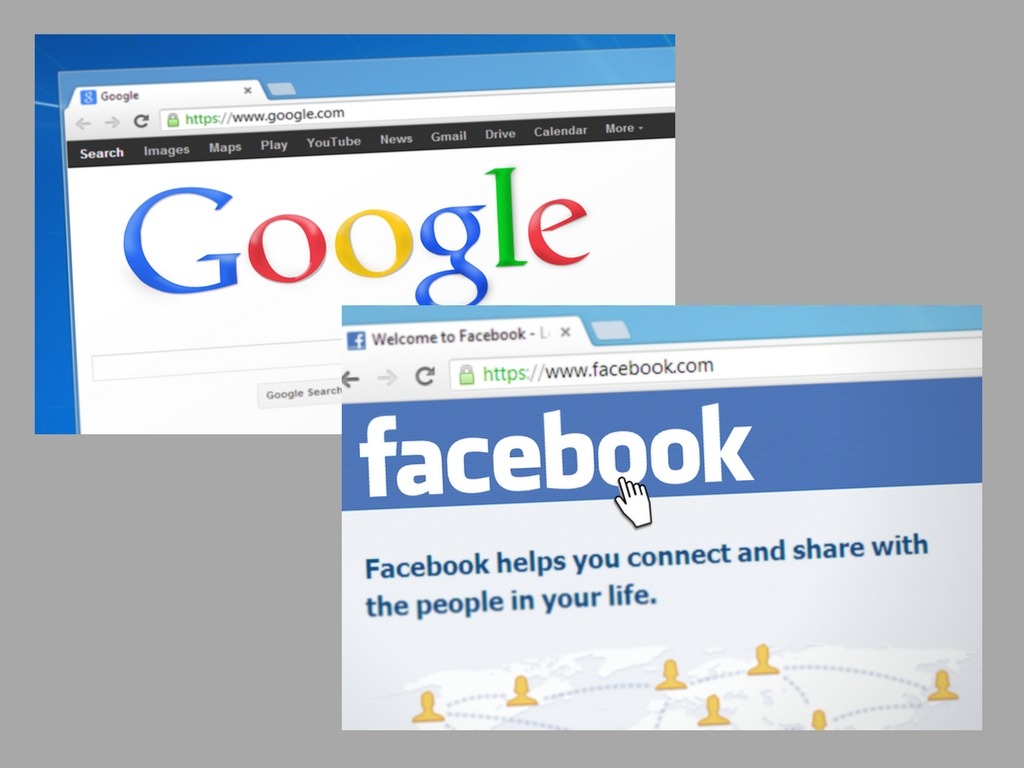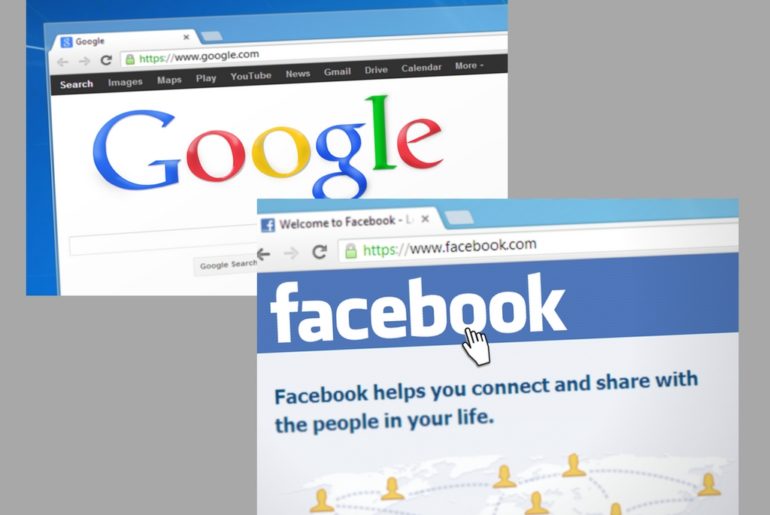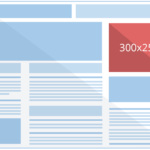
Together, Google and Facebook now control 20% of global ad spend, up from 11% in 2012, and their growth shows no signs of slowing down.
Monopolies are problematic enough, but what if two companies together pace steadily towards capturing the entire market? What happens to the smaller players — ad networks, exchanges, media giants, smaller publishers? This is why the Google Facebook Duopoly is fast catching on as somewhat of a scare term in ad tech.
2012-2016:
According to a recent report by Zenith Media, the two companies captured 64% of global ad spend growth in the last four years. In this year’s report, Zenith focused on isolating ad revenue from other sources of revenue for a clearer picture of the global ad market.
Last year, Google attracted $79.4bn in ad revenue, three times more than the second-largest — Facebook — which attracted $26.9bn. According to the report, 2016 was also the year when internet media displaced traditional media, with digital platforms funded by online advertising dominating the rankings, and other pure-internet media owners like Baidu, Microsoft, Verizon, and Twitter accompanying Google and Facebook. These seven combined accounted for 74% of online ad spend and 24% of global ad spend. Twitter was the fastest-growing media owner on the list, with ad revenue uplift of 734% between 2012 and 2016.
The scale of the biggest platforms highlights the importance of building strong partnerships between agencies and media owners. Brands need to deal with these platforms to communicate with consumers effectively and efficiently, and agencies need to ensure they do so on the best terms available.
— Vittorio Bonori, Global Brand President, Zenith Media
2017:
Another recent report by eMarketer also confirms the tightening grip that Google and Facebook have on the US digital ad market. Google is expected to account for 40.7% of US digital ad revenues this year, with its search market growing at 16.1% to $28.55bn, claiming 78% of total search ad revenues this year.
Google’s dominance in search, especially mobile search, is largely coming from the growing tendency of consumers to turn to their smartphones to look up everything from the details of a product to directions. Google and mobile search as a whole will continue to benefit from this behavioral shift.
— Monica Peart, forecasting analyst, eMarketer
Google’s growth in search is only rivaled by Facebook’s growth in display, whose business is expected to jump 32.1% to $16.33bn, capturing 39.1% of US market share. Google’s display business will also grow, but its overall market share will fall, according to the report.
It’s important to remember that Google and Facebook are world’s largest media companies. Also, they have direct access to tier-1 demand relationships and thus, most of the ad dollars don’t go out of their closely-knit circles. An analysis, in fact, outlined that the growth in the duopoly is primarily because of growth in their media businesses, not their ad-tech powering the open web. Header Bidding has further made it difficult for Google to actually grow in the open web without providing competitive payouts. Facebook recently, on the other hand, has embraced Header Bidding (along with its ad network) and is making inroads in the open web. It will be interesting to see how their dominance in open web shifts.
— Atul Agarwal, co-founder and co-CEO, AdPushup
Time to Panic?
As a hotly debated topic, everyone has something to say about the possible outcomes of Google Facebook duopoly’s domination in the market at the expense of other players.
Media-first publishers cite the engineering capabilities and tech focus of internet-first companies as a reason for why they can build better products faster and therefore keep and grow their audience much more efficiently. A good example of this is how both Google and Facebook launched AMP and Instant Articles respectively to fix slow page load times on the mobile web. These pages also get display priority and are shown first; so while Google and Facebook set the standards, media publishers have no choice but to follow them.
Google and Facebook also have access to significantly more user data than media publishers and even other ad networks or exchanges can ever hope to collect, something which can be and is used to better target ads.
But let’s not forget: This dominance is hardly new. Google has been the market leader for almost as long as online advertising has existed, but that has not stopped new, innovative players from breaking into the market. Moreover, advertising is not a zero sum game: Just because Google and Facebook are gaining share doesn’t mean that others are doomed to losing theirs; the market itself grows too, and growth in ad tech has always been about disruption.

Shubham is a digital marketer with rich experience working in the advertisement technology industry. He has vast experience in the programmatic industry, driving business strategy and scaling functions including but not limited to growth and marketing, Operations, process optimization, and Sales.







